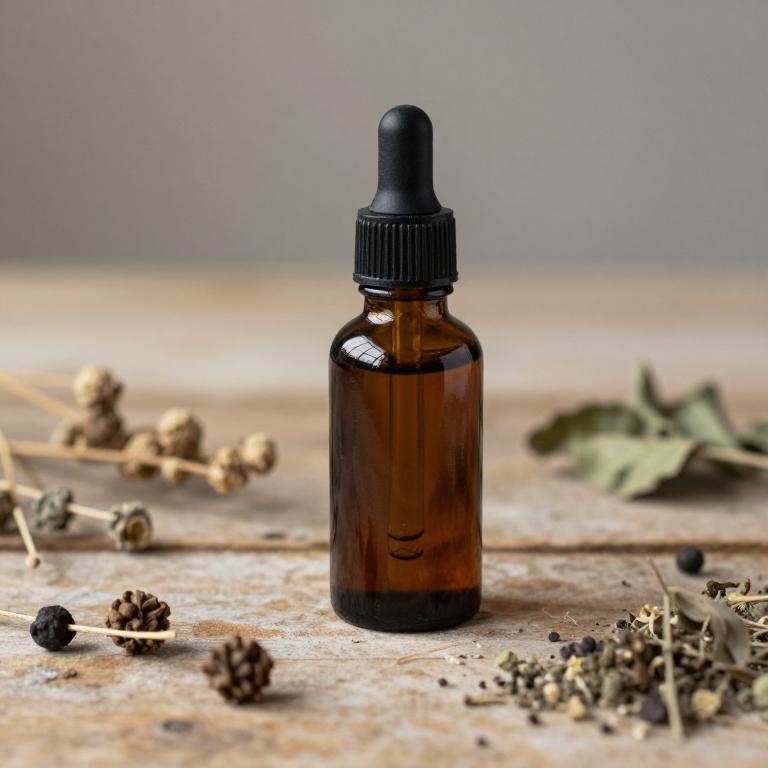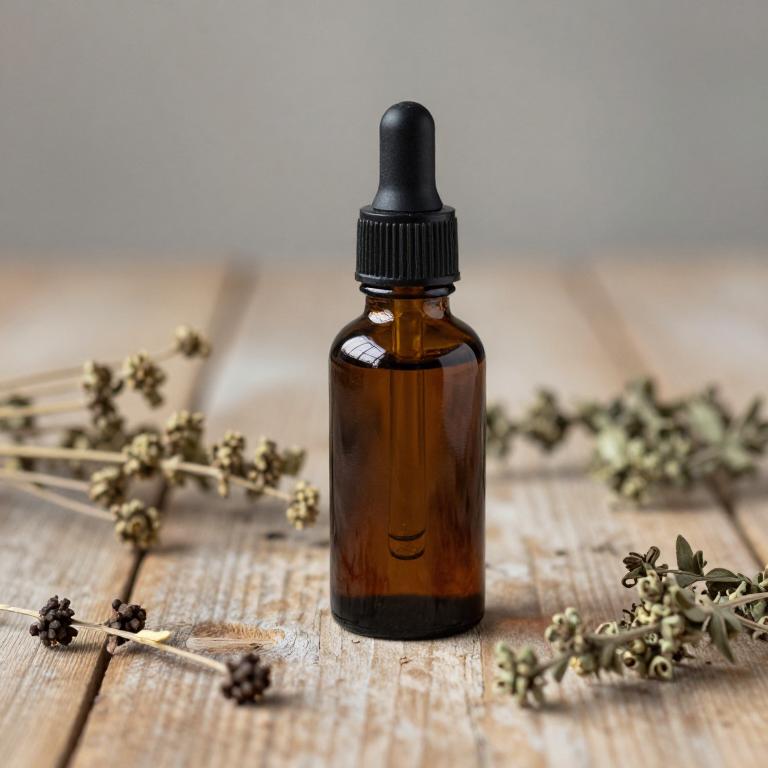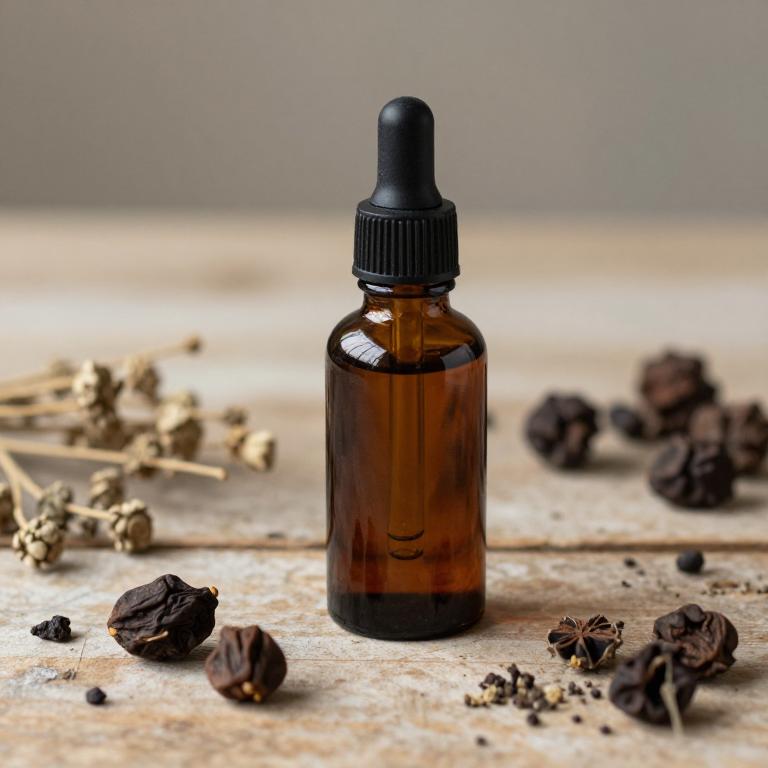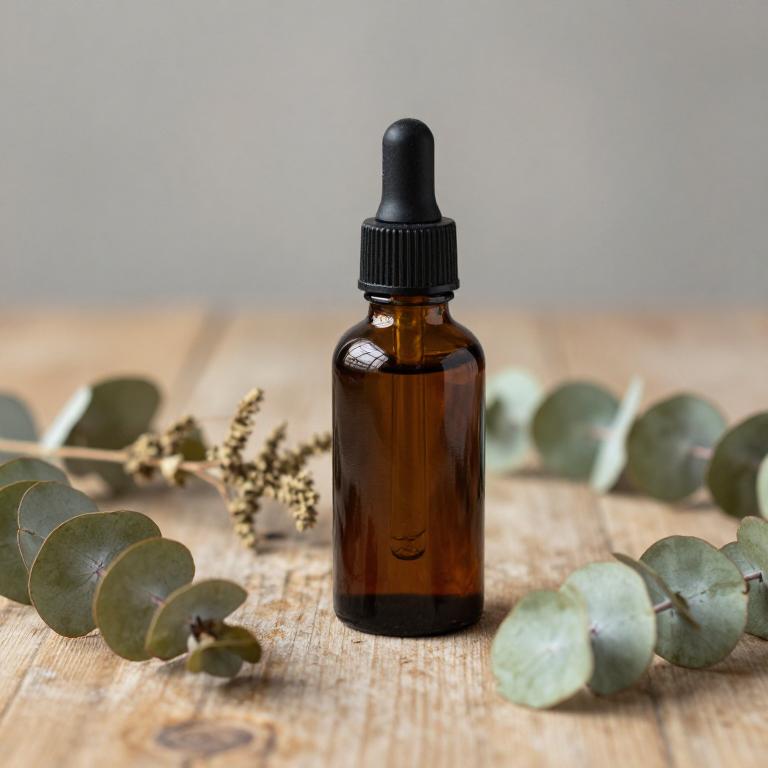10 Best Herbal Tinctures For Bad Breath

Herbal tinctures have gained popularity as a natural remedy for bad breath, offering a gentler alternative to conventional mouthwashes.
These tinctures are typically made by soaking herbs such as peppermint, clove, and sage in alcohol, allowing the beneficial compounds to infuse into the liquid. They work by reducing oral bacteria, freshening the breath, and promoting overall oral health. Many people prefer them for their natural ingredients and absence of harsh chemicals.
Regular use of herbal tinctures can help maintain fresh breath and support a balanced oral microbiome.
Table of Contents
- 1. Salvia (Salvia officinalis)
- 2. Fennel (Foeniculum vulgare)
- 3. Ceylon cinnamon (Cinnamomum verum)
- 4. Oregano (Origanum vulgare)
- 5. Peppermint (Mentha piperita)
- 6. Rosemary (Rosmarinus officinalis)
- 7. Licorice (Glycyrrhiza glabra)
- 8. Ginger (Zingiber officinale)
- 9. Black pepper (Piper nigrum)
- 10. Eucalyptus (Eucalyptus globulus)
1. Salvia (Salvia officinalis)

Salvia officinalis, commonly known as sage, has been traditionally used for its aromatic and medicinal properties, including its ability to combat bad breath.
Sage herbal tinctures are concentrated liquid extracts made by soaking the dried leaves of the plant in alcohol, which helps preserve and concentrate its active compounds. These tinctures contain essential oils like thujone and cineole, which have antimicrobial properties that can help reduce oral bacteria responsible for halitosis. When used as a mouth rinse or gargle, sage tinctures can freshen breath and support oral hygiene.
Due to its potent nature, it is important to use sage tinctures in moderation and consult with a healthcare provider before incorporating them into a daily routine.
2. Fennel (Foeniculum vulgare)

Foeniculum vulgare, commonly known as fennel, has been traditionally used in herbal medicine for its digestive and breath-freshening properties.
Fennel tinctures are made by steeping the dried seeds in alcohol, allowing the essential oils to extract their aromatic and medicinal compounds. These tinctures are often used to combat bad breath due to their high content of volatile oils like anethol, which can neutralize odors and support oral hygiene. The antiseptic and anti-inflammatory properties of fennel help reduce bacteria in the mouth, promoting fresher breath.
When used regularly, fennel tinctures can be a natural and effective alternative to commercial mouthwashes for those seeking holistic oral care solutions.
3. Ceylon cinnamon (Cinnamomum verum)

Cinnamomum verum, commonly known as true cinnamon, is often used in herbal tinctures to help combat bad breath due to its antimicrobial and anti-inflammatory properties.
The essential oils found in cinnamon, particularly cinnamaldehyde, can help neutralize odor-causing bacteria in the mouth. When used as a tincture, cinnamon can be applied directly to the gums or swished in the mouth to freshen breath naturally. Its ability to stimulate saliva production further aids in reducing oral bacteria and preventing the buildup of plaque.
While cinnamon tinctures are generally safe, they should be used in moderation and avoided by individuals with allergies or sensitive stomachs.
4. Oregano (Origanum vulgare)

Oreganum vulgare, commonly known as oregano, is a popular herb used in the preparation of herbal tinctures for addressing bad breath.
These tinctures harness the antimicrobial and antifungal properties of oregano, which can help combat the bacteria and fungi responsible for oral malodor. The essential oils in oregano, particularly carvacrol and thymol, are known for their ability to neutralize odor-causing compounds in the mouth. When used as a natural remedy, oregano tinctures can provide a refreshing breath and support overall oral hygiene.
However, it is important to consult with a healthcare professional before using these tinctures, especially for individuals with sensitive stomachs or existing medical conditions.
5. Peppermint (Mentha piperita)

Mentha piperita, commonly known as peppermint, is a popular herb used in the formulation of herbal tinctures to address bad breath.
These tinctures are valued for their refreshing menthol scent, which helps to mask and neutralize unpleasant oral odors. The active compounds in peppermint, such as menthol and other essential oils, have antimicrobial properties that can help reduce the bacteria responsible for halitosis. When used as a natural remedy, peppermint tinctures offer a safe and effective alternative to conventional mouthwashes.
Regular use of peppermint tinctures can support oral hygiene and contribute to fresher breath throughout the day.
6. Rosemary (Rosmarinus officinalis)

Rosmarinus officinalis, commonly known as rosemary, is a popular herb used in the formulation of herbal tinctures for addressing bad breath.
These tinctures are often made by steeping fresh or dried rosemary leaves in alcohol, allowing the essential oils and active compounds to infuse into the liquid. Rosemary contains compounds like rosmarinic acid and carnosic acid, which have antimicrobial properties that can help reduce oral bacteria responsible for bad breath. The aromatic nature of rosemary also helps freshen the breath and improve oral hygiene.
When used regularly, rosemary tinctures may offer a natural and effective alternative to conventional mouthwashes for managing halitosis.
7. Licorice (Glycyrrhiza glabra)

Glycyrrhiza glabra, commonly known as licorice root, is a traditional herbal remedy that has been used for centuries to support oral health and alleviate bad breath.
Its tincture form is particularly effective due to its high concentration of active compounds, including glycyrrhizin and flavonoids, which have antimicrobial and anti-inflammatory properties. These components help reduce the presence of harmful bacteria in the mouth that contribute to halitosis. Licorice tinctures can also soothe sore gums and promote a balanced oral microbiome, making them a natural alternative to conventional mouthwashes.
When used regularly, glycyrrhiza glabra tinctures may offer a safe and effective way to combat bad breath while supporting overall oral hygiene.
8. Ginger (Zingiber officinale)

Zingiber officinale, commonly known as ginger, has been traditionally used for its digestive and anti-inflammatory properties, and its herbal tinctures are gaining attention for their potential role in combating bad breath.
The active compounds in ginger, such as zingibain and gingerol, possess antimicrobial properties that can help reduce the bacteria responsible for unpleasant oral odors. When used as a tincture, ginger can be applied directly to the mouth or incorporated into oral hygiene routines to freshen breath naturally. Its stimulating effect on the digestive system may also indirectly improve breath by reducing gastrointestinal issues that contribute to halitosis.
However, while ginger tinctures show promise, they should complement, not replace, proper oral hygiene practices and professional dental care.
9. Black pepper (Piper nigrum)

Piper nigrum, commonly known as black pepper, has been traditionally used in herbal medicine for its potent properties that may help combat bad breath.
The tinctures derived from black pepper contain compounds like piperine, which can stimulate saliva production and help neutralize oral bacteria that contribute to halitosis. These tinctures are often used as natural alternatives to commercial mouthwashes, offering a more holistic approach to oral health. When used regularly, Piper nigrum tinctures can freshen breath by reducing the buildup of odor-causing microorganisms in the mouth.
However, it is important to consult with a healthcare professional before incorporating these tinctures into one's routine, especially for individuals with sensitive digestive systems or existing medical conditions.
10. Eucalyptus (Eucalyptus globulus)

Eucalyptus globulus, commonly known as eucalyptus oil, is a natural remedy often used in herbal tinctures to address bad breath due to its antimicrobial and deodorizing properties.
The tincture works by targeting the bacteria responsible for oral malodor, helping to freshen breath and promote a cleaner mouth environment. Its essential oil content provides a refreshing scent that can mask unpleasant odors temporarily. When used regularly, eucalyptus globulus tinctures may support overall oral hygiene and reduce the recurrence of bad breath.
However, it is important to consult with a healthcare professional before use, especially for those with sensitive mouths or existing health conditions.